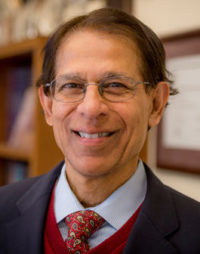
Beyond age 60, adults often renew a search for their life’s meaning – and the process has health consequences, according to a new study from the University of California, San Diego.
The search, common among young adults, typically slows or stops in middle age and resurfaces again after age 60, the researchers found. That’s when new issues of identity and mortality can emerge. At that time, the meaning people have assigned to their life begins to change, said geriatric neuroscientist Dilip V. Jeste, M.D.
Jeste and colleagues worked with more than 1,000 study participants ages 21 to 100-plus. In a three-year psychological assessment involving interviews and questionnaires, the presence of life meaning was linked to better physical and cognitive health. Meanwhile, those who said they were seeking a purpose or a life mission reported poorer health.
The difference appears to be between contentment and stress, the researchers theorized.
“Many think about the meaning and purpose in life from a philosophical perspective, but meaning in life is associated with better health, wellness and perhaps longevity,” said Jeste.
“The medical field is beginning to recognize that meaning in life is a clinically relevant and potentially modifiable factor, which can be targeted to enhance the well-being and functioning of patients,” added Awais Aftab, M.D., the paper’s first author.
“It’s an exciting time in this field as we are seeking to discover evidence-based answers to some of life’s most profound questions,” Jeste concluded.
The study was published in the The Journal of Clinical Psychiatry.




